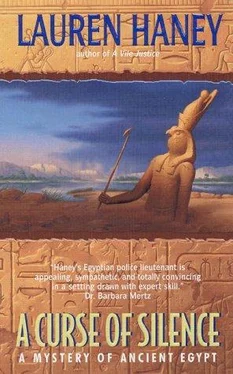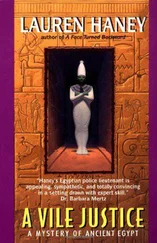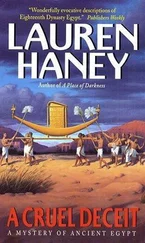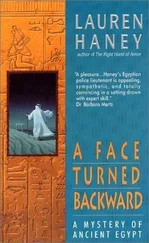Lauren Haney - Curse of Silence
Здесь есть возможность читать онлайн «Lauren Haney - Curse of Silence» весь текст электронной книги совершенно бесплатно (целиком полную версию без сокращений). В некоторых случаях можно слушать аудио, скачать через торрент в формате fb2 и присутствует краткое содержание. Жанр: Исторический детектив, на английском языке. Описание произведения, (предисловие) а так же отзывы посетителей доступны на портале библиотеки ЛибКат.
- Название:Curse of Silence
- Автор:
- Жанр:
- Год:неизвестен
- ISBN:нет данных
- Рейтинг книги:3 / 5. Голосов: 1
-
Избранное:Добавить в избранное
- Отзывы:
-
Ваша оценка:
- 60
- 1
- 2
- 3
- 4
- 5
Curse of Silence: краткое содержание, описание и аннотация
Предлагаем к чтению аннотацию, описание, краткое содержание или предисловие (зависит от того, что написал сам автор книги «Curse of Silence»). Если вы не нашли необходимую информацию о книге — напишите в комментариях, мы постараемся отыскать её.
Curse of Silence — читать онлайн бесплатно полную книгу (весь текст) целиком
Ниже представлен текст книги, разбитый по страницам. Система сохранения места последней прочитанной страницы, позволяет с удобством читать онлайн бесплатно книгу «Curse of Silence», без необходимости каждый раз заново искать на чём Вы остановились. Поставьте закладку, и сможете в любой момент перейти на страницу, на которой закончили чтение.
Интервал:
Закладка:
Bak rolled his eyes skyward. “The slayer came from
Waset. He’s a member of Amonked’s party. I doubt he’s heard of my so-called prowess as a hunter of men.”
“Our illustrious inspector of fortresses mentioned while in Buhen your success in laying hands on those who were smuggling elephant tusks. And Commandant Thuty vowed to sing your praises in the letter he wrote Amonked before we left Buhen. You delivered that letter yourself.”
Nebwa did not have to spell out the obvious: if Amonked knew of Bak’s successes, so, no doubt, would everyone else in his party.
“You don’t rely on hunting to supply the garrison with fowl?” Amonked asked.
“We do, yes. The river offers an abundance of birds.
Especially when the seasons change and they fly north or south in vast numbers.” Commander Woser walked out from beneath the portico, in actuality four connected lean tos with palm-frond roofs, built around the high mudbrick walls of the poultry yard. “The ducks and geese you see here are held captive for their eggs and chicks.”
Amonked eyed, in the shade of the portico, several dozen flattish, large-mouthed baked clay bowls filled with straw, many occupied by nesting ducks and geese. “I see.”
“Would it not be more worthwhile to raid nests in the wild?” Horhotep asked irritably. He stood at the edge of the shallow square pool in the center of the yard, scraping the bottom of a sandal on the rim, removing the smelly, gooey waste he had stepped in. “Look at the number of men you need here. They must clean the yard and carry away the manure. They must constantly fill the pool with water, clip the birds’ wings and feed them, and perform innumerable tasks I can but imagine.”
“Less than half the population of Iken carries spear and shield,” Woser said, speaking with forced patience, “and only half the remainder are fully occupied with trading.
What would you have us do with the balance? Let them idle away each day, with nothing better to do than foment trouble?”
“You’ve only to send them on their way, back to their homeland.”
“No man comes to Iken without good reason,” Nebwa stated in a flat, hard voice, “and none remain unless they must. They’d not retain their traveling passes otherwise.”
A brownish goose waddled toward Horhotep, wings flap ping, hissing. He wasted no time rejoining the men under the portico. “How long can it possibly take to conduct the kind of business available to the impoverished wretches
I’ve seen so far?”
Nebwa raked the adviser with cold eyes. “The most pow erful of kings need not wear fine linen and jewelry, Lieu tenant.”
“Some people await a ship, and many ships are delayed,”
Woser hastened to explain. “Others place orders for objects that have yet to be produced. And others await caravans that come across the desert from distant oases, their day of arrival impossible to predict-if indeed they arrive at all.
They oft times bring too few trade items to provide suste nance over an extended period of time. Especially when they bring along large families.”
“Nonetheless, they must eat and sleep while they’re here,” Amonked said, nodding his understanding. “I ap plaud your good sense, Commander, in seeing that they earn what they consume.”
Horhotep’s mouth tightened in resentment, but he had the wit to hold his tongue. Bak was pleasantly surprised by the inspector’s open approval, and he could see that Nebwa and Woser shared the feeling.
As in each warehouse they had visited, Woser began to rattle off exact numbers-in this case, of birds consumed within the garrison and the lower city, of eggs laid and distributed, of sheaves of straw spread out and cleared away each week, and so on.
Half listening, taking care where he trod, Bak walked to the edge of the pool, where steps descended into the water, easing the path of the large flock that dwelt in the yard. Six or eight ducks swam toward him and gathered around his feet, quacking loudly, clearly expecting to be fed.
Bak turned his back to the pool and studied the men of the inspection party, wondering which-if any-had leaped upon him in the night, dagger in hand. If one of them had, it would not be the first time the man he sought had as sumed he knew more than he actually did.
Amonked, the individual with the most promising reason for slaying Baket-Amon, seemed a most unlikely assailant.
Of medium height, a bit stout, an indoor man through and through. But he had once been a youth, and all healthy sons of the nobility were schooled in wrestling and in the use of weapons.
Horhotep had envied Baket-Amon, but envy alone seemed a small reason for murder. A trained officer, as he was purported to be, would know how to steal up behind a man and stab him. The most skilled of soldiers would have had trouble striking a death blow on so dark a night, especially with the victim bundled up and shapeless the way Bak had been.
Sennefer, who claimed to have liked and admired Baket Amon, posed a puzzle. Would a man of wealth and position come to Wawat out of simple curiosity about the land and its people? He was a hunter and fisherman, presumably skilled in the use of weapons, but, if he was as fond of the prince as he said, he had had no reason for slaying him.
Another man with no clear reason for murder was Cap tain Minkheper-for the simple reason that he had not known Baket-Amon well. Or such was his claim. Bak had no doubt he could slay a man. Men who sailed merchant ships on the Great Green Sea had to be strong and tough, prepared to do battle with pirates and competitors alike.
What of the others who had come with Amonked from
Waset? Like Sennefer, Lieutenant Merymose claimed to have admired the prince. He was moderately skilled in the use of weapons, thanks to Sergeant Dedu, and he was young and strong. But he was another who had no evident reason for murder.
Thaneny was crippled, but his upper torso was more muscular than most, better developed. Bak was convinced the scribe would never have slain Baket-Amon-or any other man-for himself, but if he firmly believed an indi vidual’s death would help Amonked or Nefret, he would not hesitate.
What of Nefret? Bak did not think all women frail and helpless. Far from it. Given the prince’s weakness for women, the concubine could easily have drawn him close and stabbed him. Stuffing the large, heavy body into the closet would have been no mean feat, but not impossible.
Especially if she had help. The same was true of the boy
Pawah. He might have been able to stab the prince but would have had trouble hiding the body-without help.
Neither had attacked Bak, of that he was certain. Nor had his assailant been a man with a leg too deformed to run.
The inspection party walked from the poultry yard to the animal paddocks, which were much like those in Buhen, and thence to the huge outdoor market, a place Bak re membered well from his earlier journey to Iken. It was much larger than that of Buhen and far more colorful.
With Amonked and Woser in the lead and Horhotep pressing close, they walked aisles that separated a multitude of lean-to-like stalls, the products on display shaded by swaths of linen or palm fronds or woven reed mats. People crowded the aisles, some who lived along the Belly of Stones, many who came from afar. Long wraps in bright colors and patterns vied with the stark white kilts of the land of Kemet. Ordinary seed beads competed with the most opulent of inlaid jewelry. Languages that clicked and hissed and purred kept translators running from stall to stall to aid in transactions simple or complicated. Transitory smells, tantalizing or repugnant, drifted through the air: per fume and sweat, incense and rotting vegetables, flowers and animal waste.
Читать дальшеИнтервал:
Закладка:
Похожие книги на «Curse of Silence»
Представляем Вашему вниманию похожие книги на «Curse of Silence» списком для выбора. Мы отобрали схожую по названию и смыслу литературу в надежде предоставить читателям больше вариантов отыскать новые, интересные, ещё непрочитанные произведения.
Обсуждение, отзывы о книге «Curse of Silence» и просто собственные мнения читателей. Оставьте ваши комментарии, напишите, что Вы думаете о произведении, его смысле или главных героях. Укажите что конкретно понравилось, а что нет, и почему Вы так считаете.












